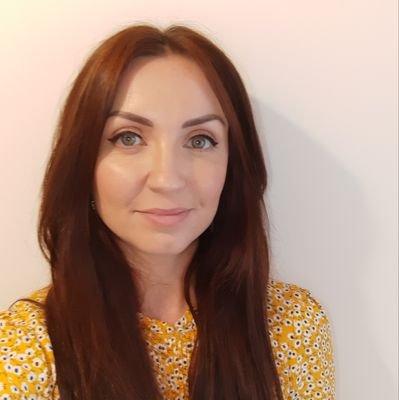
March 8, 2021
To mark the 2021 International Women’s Day themed #Choose to Challenge, Afronomicslaw.org celebrates Dr Clair Gammage’s brilliant contributions to International Trade Law and Development. Dr Gammage is an Associate Professor in International Economic Law at the University of Bristol. She has given expert evidence at the European and UK Parliaments on matters relating to trade policy.
“#Choose to Challenge: A challenged world is an alert world and from challenge comes change. So let's all choose to challenge.”
Afronomicslaw.org (A): Please tell us about your research.
Clair Gammage (CG): My research explores the specific intersections between international trade and gender, human rights, labour standards and sustainable development. I examine international trade rules through an interdisciplinary lens, including international political economy, to identify how international trade can contribute to development at local and global levels. I have also been doing a lot of work on Brexit with a focus on the UK as global trade and development actor.
A: How did you become interested in academia and international economic law?
CG: When I was studying the LLM International Law at the University of Nottingham, I was taught by two formidable and brilliant women: Prof. Mary Footer and Prof. Annamaria La Chimia. I was first exposed to the vast scholarship of world trade law and law and development under their tutelage. They both had a profound impact on the direction my life took when I completed the masters programme. These two women inspired me to pursue a career in academia.
A: What informs your scholarly interventions?
CG: My scholarship is informed by lived experiences – my own and others. I spent periods of my childhood in the UK and the USA, and my nomadic formative years instilled a deep sense of curiosity within me. Being curious is the most important attribute for an academic because curiosity drives us to challenge, to interrogate, and to problematise phenomena. My scholarly interventions in my academic writing and in my teaching are always informed by the desire to probe deeper into an issue to better understand its social, cultural, and economic effects in society. I am always curious to know how a legal rule at the multilateral level actually plays out for the individual living in country X.
A: Have you faced any challenges in your career because of your gender? If you have, how did you overcome these challenges?
CG: I am in the very privileged position of being paid to think, share ideas and engage in respectful intellectual debate and I do not take that for granted. That being said, misogyny and discrimination remain common experiences for many women in academia and I would borrow Adrien K. Wing’s expression of a ‘spirit injury’ to best describe how it feels. Like many women, I have suffered spirit injuries as an academic but I have also met incredible people from within and outside academia that have helped me become stronger and more resilient; to see my own value. All women, irrespective of their occupation, experience microaggressions on a regular basis and I do not think academia is as progressive a profession as some might lead us to believe. But, there is also an incredible sisterhood growing within the International Economic Law (IEL) discipline and we support one another as challenges arise.
A: What lessons have you learned in the course of your career so far?
CG: The importance of saying ‘no’. As women, we have a tendency to say ‘yes’ to everything out of a misplaced sense of duty without thinking about whether the opportunity, task or role is actually necessary or beneficial or worthwhile to us. I now have a checklist of things I go through before I accept an invitation to write, collaborate or contribute to an event. I take time to carefully assess what impact that particular event or task will have on my career, my well-being, and my work/life balance. The same is true of administrative tasks within the institution – we all know women are unduly burdened with reproductive (or unseen) labour. It is really important that women learn that it is OK, within reason, to say ‘no’ to things – especially if saying ‘yes’ will unduly add to their existing workload (seen and unseen).
A: What advice would you give to younger female academics and students?
CG: To create a very close network of supportive colleagues – not just women, but certainly some women – to act as your sounding board and to champion you. I suffer from very acute imposter syndrome and this appears to be getting more pronounced the further into my career I progress. I have an amazing friend, another female IEL scholar, who is like my personal cheerleader. In effect, she coaches me through my moments of panic and anxiety. As someone who is very private, I have realised that being vulnerable with people you trust – even in academia – can lead to growth. I would encourage all female academics and students to find a mentor to support them professionally, and a personal cheerleader to help them when they are drowning in self-doubt.
A: Please describe yourself in three words.
CG: Fierce. Fun. Ambitious.
A: What makes you happy? Happiness is Ayana, my 9-year-old daughter.
A: What changes to the world would you like to see?
CG: Like many others, I long for a more equitable and just world. The pandemic has really brought into sharp focus the fault lines of structural inequality that have fractured the global economy. To bridge the gap between the richest and poorest, and to ensure every child born into this world has a life they value, are among some of the things I would like to see changed. To achieve this ambition, a radical restructuring of the institutional framework governing the world and an ideological turn that frees us from the capitalist logic that enslaves us is needed. I am not sure I will see these changes in my lifetime, but we can all die trying.